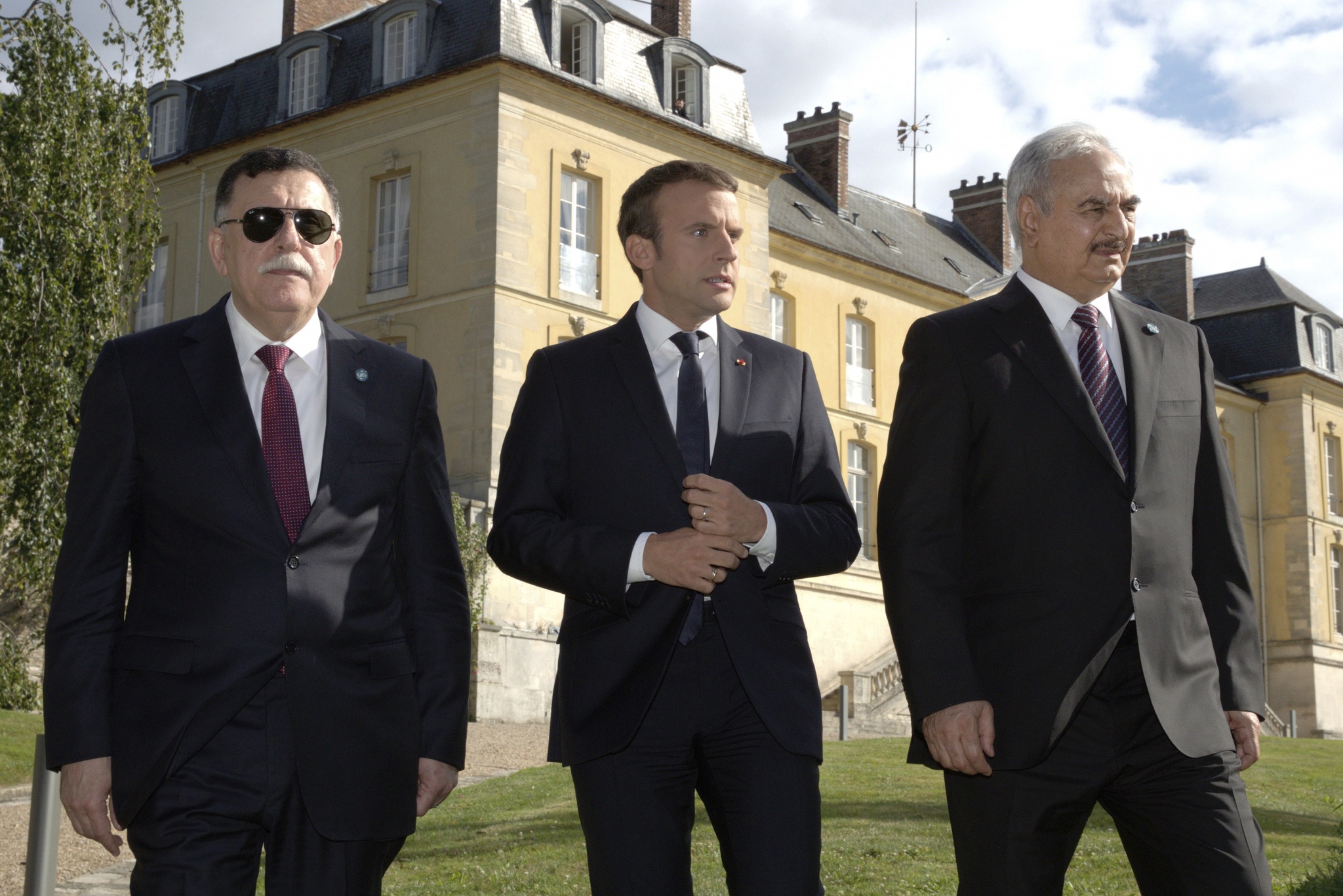The declaration adopted last week by Fayez Al Sarraj and Khalifa Haftar in France, represents a positive and important step toward resolving the Libyan crisis, but its implementation depends on the consensus of different Libyan parties and the support of international and regional actors, writes Valdai Club expert Nourhan El-Sheikh.
The declaration adopted by the two main Libyan actors, Fayez Al Sarraj and Khalifa Haftar, in La Celle Saint-Cloud on July 25, 2017, represents a positive and important step toward resolving the Libyan crisis. Its 10 points are treated as an additional protocol to the Skhirat Agreement. There are some factors that help pushing it forward toward stability in Libya, among them:
-
The relative retreat of Al-Ghawail as seen in the defeat of Karbouli, east of the capital Tripoli. Also, the continued disappearance of Saif al-Islam Gaddafi who has not started yet any mobility on the ground or even appeared live on TV. Both developments left Haftar and Al Sarraj as the dominant powers in the Libyan scene. So, consensus between them is the starting point for moving toward political stability in Libya.
-
Egyptian and Emirati support for the declaration.
-
Western and French final recognition of Haftar as one of the two main powers in Libya after a period of denial and ignoring him and his efforts in combating terrorism in Libya.
If we try to imagine a “roadmap” for the possibility and timetable of declaration implementation:
-
Presidential and parliamentary elections may be achieved in short-term, with March 2018 proposed as a possible date. The election is the right starting point in resolving the Libyan crisis as it will consolidate power in a single legislative and executive entity. The Supreme Commission for Elections is already in place since the last elections in 2012. It enjoys wide acceptance and keeps good reputation and relations with all political parties in Libya. It is independent and stands at a distance from all parties and deals with both governments. It also has experience as it held three previous elections in similar security conditions.
-
Integration of combatants and militant groups into the Libyan regular army. Their disarmament, demobilization and reintegration into civilian life need more time and efforts. It is a long-term mission. The important thing is to start the process and keep a constant progress in it.
-
The most difficult part is the control over illegal immigration, which was difficult even in Gadhafi’s era. Domination of professional gangs in the process and the fact that they work in secret make it difficult to detect and pursue them. As well as the absence of state authority and any real control over the southern borders of Libya, from where most of the migrants come.

Fayez al-Sarraj, President Emmanuel Macron, and General Khalifa Haftar walk to a media confeence at the Chateau of the La Celle-Saint-Cloud on July 25, 2017 (Philippe Wojazer/Pool Photo via AP)
The declaration is an important and good step, but it is still insufficient, and its success depends on several factors.
-
Consensus between the Supreme Council of the State and the House of Representatives (Parliament) on issuing electoral laws related to presidential and parliamentary elections. The consensus must widen to include other influential parties in the process. Otherwise, the fate of the declaration will be the same as that of the Skhirat agreement, and what was reached in Abu Dhabi.
-
Sufficient funding of the electoral process is also important. In addition, it is crucial to provide minimum degree of security, so that the Commission will be able to carry out the electoral process.
-
Cooperation and support from international powers, especially US and Italy. Italy, which has an important and historic role in Libya, worries a lot about the possibility of marginalization of its role after the strong French involvement. Italy could not read the Libyan scene objectively and sided itself with Al Sarraj. It has fears now not to be accepted as a mediator. The US attitude is also important. A go-ahead from Washington would accelerate the outcome of the declaration.
-
International pressure over Qatar and Turkey to accept the declaration, and push the internal parties affiliated to them to accept it is also needed.
Summing up, implementation of the declaration and reaching stability in Libya is not easy, as they depend mainly on the consensus and will of different Libyan parties and the support of the process by international and regional actors.




